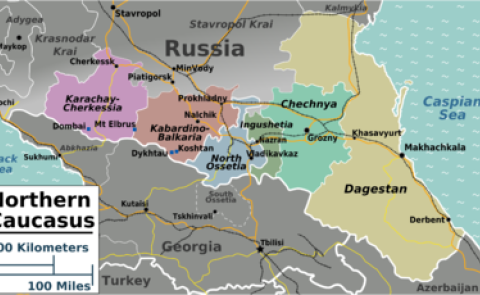
Recent developments along the Armenia-Azerbaijan border
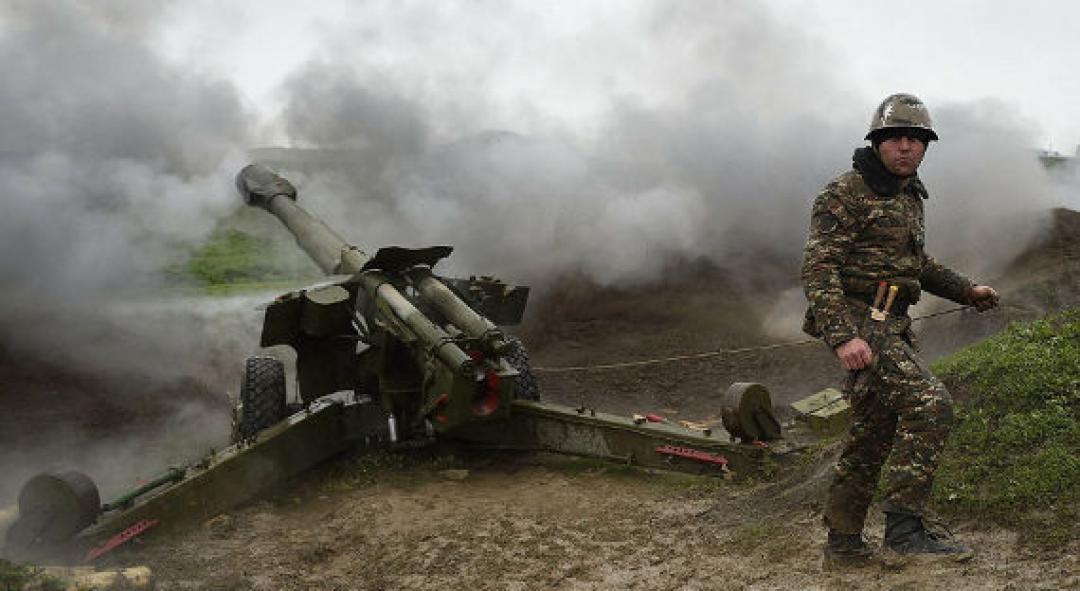
Rustam Muradov visited Baku and Yerevan
Deputy Commander of the Russian Southern Military District Rustam Muradov on 17 October transported the body of an Armenian serviceman from Baku to Yerevan.
In the bloody battles on the Azerbaijani-Armenian border, which began on 15 November and intensified on 16 November, both sides accuse each other of violating the ceasefire and aggravating the situation.
The incessant fighting, mediated by Russia, ended at night on November 16. Moscow says the situation has stabilised.
Until August this year, General Muradov held the post of commander of the Russian contingent in Nagorno-Karabakh.
Moscow has entrusted the missions between Azerbaijan and Armenia with the exchange of prisoners and other detainees, as well as mine maps, to Rustam Muradov.
Azerbaijan says 7 servicemen were killed and 10 were injured in clashes on the border with Armenia on November 16.
Armenia said that two battle positions came under the control of Azerbaijan.
Call from the United States and the United Nations to Azerbaijan and Armenia
The United States has called on Azerbaijan and Armenia to "take immediate concrete steps" to reduce and prevent further tensions.
The United States is "deeply concerned" by reports of intense fighting between Azerbaijan and Armenia, US Secretary of State Antony Blinken said in a statement on 16 November.
"We also call on the parties to work directly and constructively to resolve all outstanding issues, including the demarcation of borders."
"As the Minsk Group co-chairs said in a statement on November 15, the escalation of tensions between Armenia and Azerbaijan underscores the need for a comprehensive and sustainable settlement of the Nagorno-Karabakh conflict or all other issues arising from it through negotiations," Blinken said in a statement.
A call from the UN to the parties
The United Nations has called on Azerbaijan and Armenia to resolve their problems peacefully through dialogue and exercise restraint.
"We are following with concern the recent reports of violence. These reports need to be reviewed. We urge all parties to exercise restraint, act in accordance with the trilateral statements signed on November 9, 2020, and January 11 this year, and resolve all relevant concerns peacefully through dialogue. We want to avoid the return of the escalation," Deputy Spokesman for the UN Secretary General, said at a briefing.
Russian media, including TASS and RIA Novosti, reported that the situation on the Azerbaijani-Armenian border has stabilised after Russian Defence Minister Sergei Shoigu's telephone conversations with the Azerbaijani and Armenian Defence ministers.
"Sergei Shoigu called on both sides to stop the actions that have aggravated the situation," the Russian Defence Ministry said in a statement posted on its website.
Pashinyan is ready to start border demarcation and sign a peace agreement
Prime Minister Nikol Pashinyan said on 17 November that Armenia has always wanted to sign a peace treaty and that an idea of such a document has been put forth by Armenia on several occasions. He also said Armenia was ready to engage in the process of delimitation and demarcation of borders with Azerbaijan.
The PM said the entire goal of the negotiation process that has been mediated by the OSCE Minsk Group Co-Chairs has been to reach an eventual peace deal with Azerbaijan.
“This is not something new,” said Pashinyan. “In all the negotiation packages that have existed before us, the goal of the negotiation process is to sign a peace treaty.”
Thus, he finds it “strange” that Azerbaijan continues to accuse Armenia of not responding to its calls for a peace deal. “Not only [has there been a] response,” Pashinyan said. “But it has been said a dozen times that it is not an Azerbaijani initiative.”
“When we talk about the full restoration of the negotiation process, when we are involved in the negotiation process, our goal is to sign a peace treaty, which must be preceded by the agreement on the text of the peace treaty. It is a rather extensive process. We have never refused to do that work. On the contrary, we have always expressed readiness. We consider it our agenda,” Pashinyan added.
During the same parliament session, Pashinyan accused Baku of stalling the process of beginning the delimitation and demarcation of borders, as has been proposed by Moscow “three times.”
Armenian Prime Minister Nikol Pashinyan says the process of launching the delimitation and demarcation hasn’t moved forward due to Azerbaijan not giving a concrete response, while Russia has made proposals three times.
“Basically, we have given consent on all three occasions to move forward with this process. I have the impression that the process didn’t move forward because Azerbaijan is delaying or not giving a concrete response,” Pashinyan said.
See Also

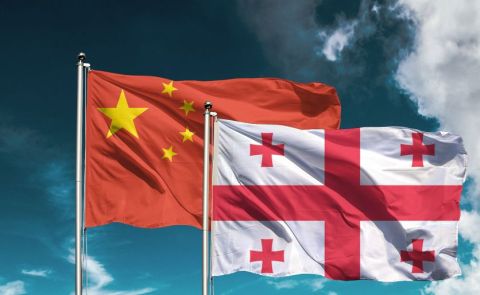
Georgian Deputy Foreign Minister Leads Delegation to Hong Kong for High-Level Talks
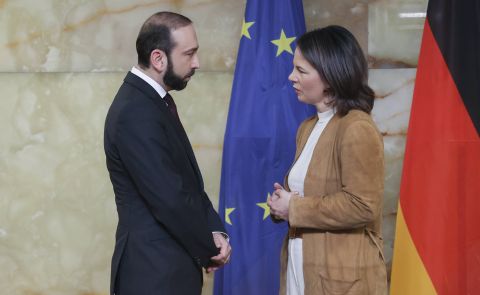
Armenia and Germany Boost Ties During Foreign Ministers' Meeting

Azerbaijani Mortgage Fund Maintains' BBB-' Rating Amid Strong State Support
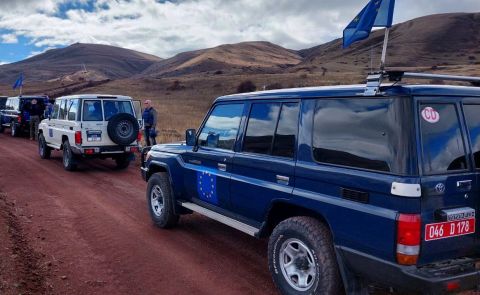
Armenia Awaits EU Decision on Observer Mission Extension
